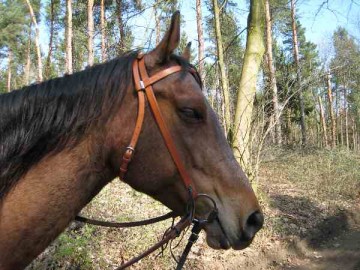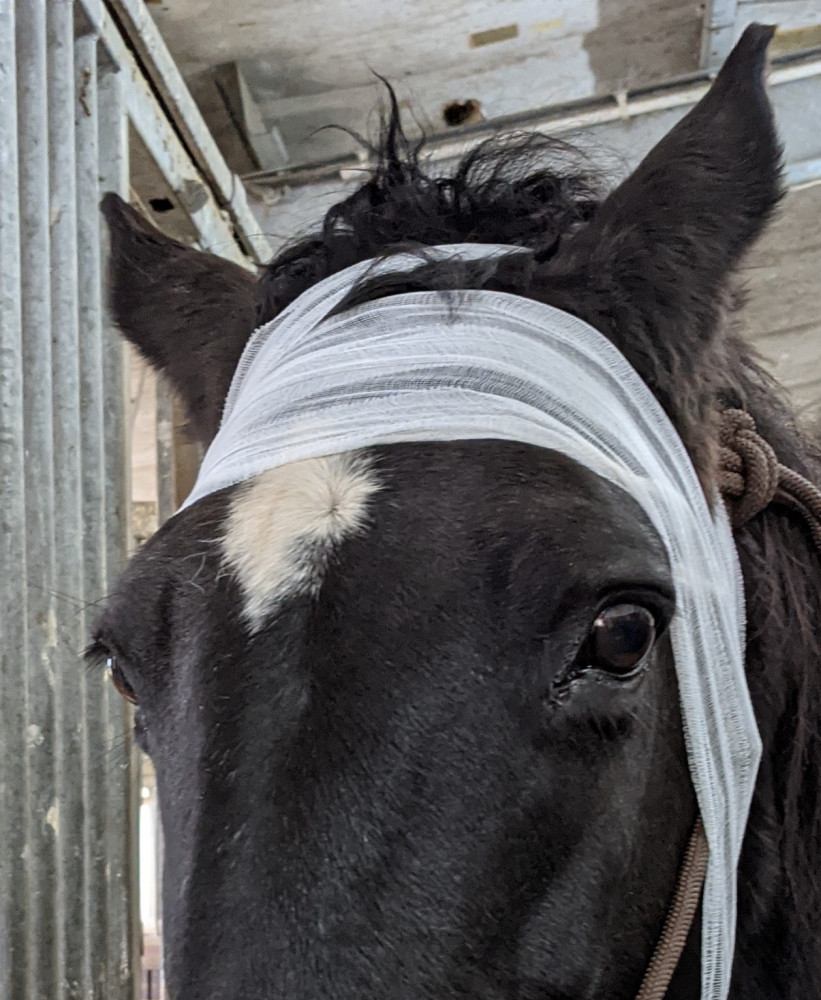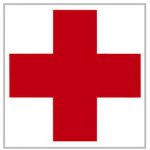Narcolepsy – If Horses just fall asleep
 Narcolepsy is a chronic neuropathy and is characterized by a sleep disorder and an extreme daytime sleepiness.
Narcolepsy is a chronic neuropathy and is characterized by a sleep disorder and an extreme daytime sleepiness.
Topical research found out that the number of horses which are concerned grows consequently. The symptoms easily can be mixed up with symptoms of other disease. Due to this here you can find a detailed description of this extraordinary illness.
Humans, dogs and horses can be affected by a narcolepsy.
Anyhow a narcolepsy clearly reduces the quality of life. In cases of a chronic situation of this disease horses even fall asleep if the rider still is sitting on its back. Consequently and for the prevention of danger horse owners cannot ride the horse anymore so that it gets “retired”. Until today narcolepsy is an irreversible disease what means that there is no cure against it. Medicine causes many and turbulent side effects so that vets only recommend them in cases of a serious situation of the disease. There still is a lack of research about narcolepsy so that it can be really difficult to diagnose it.
 Normally, riders firstly notice that the horse lowers its head and buckles its front legs while standing in the box. If horse owners do not see this sometimes they find wounds on the front legs of the horse which are mostly located near the fetlock. Then it is really important to find out the reason for these wounds and examine if the horse suffers from a narcolepsy. Generally one needs to contact a vet. He can check if the symptoms stand for the neuropathy or a simple overstress of the horse. The cure of an overstress is easy: the horse only needs to get a new box in a silent area and additionally some time for recovering. In opposite to this it is impossible to cure a horse with a narcolepsy.
Normally, riders firstly notice that the horse lowers its head and buckles its front legs while standing in the box. If horse owners do not see this sometimes they find wounds on the front legs of the horse which are mostly located near the fetlock. Then it is really important to find out the reason for these wounds and examine if the horse suffers from a narcolepsy. Generally one needs to contact a vet. He can check if the symptoms stand for the neuropathy or a simple overstress of the horse. The cure of an overstress is easy: the horse only needs to get a new box in a silent area and additionally some time for recovering. In opposite to this it is impossible to cure a horse with a narcolepsy.
Why do horses have a Narcolepsy?
Until today research did not find one common origin for a narcolepsy. Nevertheless there are several hypotheses from different scientists. Despite of their differences they all have one thing in common: narcolepsy is a neuropathy and affects certain parts of the brain. According to this all affected parts are responsible for the periods in which a horse sleeps or in which he is awake. If these party are damaged a normal regulation of these periods cannot be guaranteed anymore. As a result the normal sleep process is disturbed and cannot operate in its normal cycle of 90 minutes.
Symptoms of a Narcolepsy
Symptoms for a narcolepsy are classified into four categories. Scientists often refer to them as the “tetrad of narcolepsy”.
- Daytime sleepiness: All day long the horse appears in a tired and exhausted way. Independently if it stands in its box or if the rider sits on his back the horse can just fall asleep. Referring to this it can sleep between several seconds or even some minutes. The horse has no chance to control the point of time when it begins to sleep.
- Cataplexy: This medical term means that the horse loses the control on certain parts of his muscles. Horse owners can notice this if their horse buckles their front legs. The horse can have closed but also opened eyes what clarifies the fact that even if the horse loses control on his muscles he does not lose his consciousness. If the horse has the cataplexy for longer than just some seconds additionally he can lose his balance and just tip over. Undoubtedly this is a dangerous situation because the horse can easily hurt his front legs. Due to this horses with a narcolepsy often have an injury of the shoulder bone or a dislocated cervical. In this case osteopathy medicine may help to set the cervical and soothe the horses’ pain.
- Sleep disorder: Humans and Horses sleep in certain sleep periods. A normal and healthy sleep rhythm begins when one falls asleep. Right after this one enters the stage of REM (Rapid Eye Movement) which represents about 20-25 % of the whole sleep. If the time between falling asleep and the beginning of the REM is too short scientists call this a SOREM (Sleep Onset Rapid Eye Movement). The stage of the REM begins to early what results in a disturbed sleep rhythm and therefore in a sleep disorder. If a vet diagnosis this shortened time between falling asleep and entering the REM he calls it a neurologic disease of the sleep rhythm.
- Sleep paralysis/ Hypnagogia: Horses can have a sleep paralysis when they fall asleep or wake up. The animal is not able to move certain parts of its muscles so that it possibly tips over. The origin for a sleep paralysis is a defect of the sodium channel. It cannot regulate the quantity of the sodium in the blood anymore so that the quantity becomes too high. This causes an uncontrolled relaxation of the muscles. In some cases riders can stop the paralysis if they slightly knock against the horses’ neck. If a horse has a paralysis it is important that riders get the horse out of the box and lead it in a slow walk. Through this the organism of the horse produces stress hormones which normalize the quantity of sodium in the blood.
Therapy
In general narcolepsy is an irreversible neurologic disease. Medicine causes many and turbulent side effects so that vets only recommend them in cases of a serious situation of the disease. A possible medicament is the Antidepressant Impiramia. Additionally vets use Atropine sulfate which reduces serious attacks up to 30 hours. Only vets can prescribe these medicaments and it is indispensable to follow the advised dosage and instructions. Horses with a less serious situation of the disease need to have their box in a comfortable and stress-free area. In these cases peaceful and quiet surrounding conditions are the best cure.
In general scientists found out that the following horse races offer an increased number of horses with a narcolepsy:
Appaloosa, Thoroughbred, Quarter Horse, Shetland Pony, Fell Pony, Suffolk Pony. Nevertheless until today there is no research result which is based on doubtless facts.
Surf tips:
- Horses with a Copper Deficiency
- Horses with a lack of selenium
- Horses with Laminitis – Origin and Therapy
- Horses with a liver disease – Origins and treatment
—All statements without guarantee—


One Comment
Comments are closed.